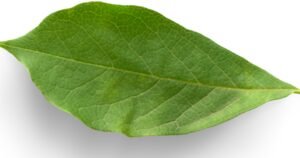Is Cigarette Ash Good for Plants? Cigarette ash is not typically recommended for plants due to the presence of toxins and harmful substances.
Cigarette ash lacks significant nutrient content, resulting in minimal potential benefits for your houseplants.
If you’re considering using it as a source of nutrition for your plants, I wouldn’t recommend it, as it is notably deficient in essential nutrients.
Cigarettes often contain chemicals and heavy metals that can harm plant health and hinder growth when introduced to the soil.
While it’s true that ash, in general, can sometimes be beneficial for plants because of its mineral content, cigarette ash is not the same as wood ash.
The latter is often used in gardening and farming due to its high potassium content and its ability to raise soil pH, making it more alkaline.
Therefore, while ash can be good for plants, it’s important to distinguish between different types of ash.
Cigarette ash, with its potential contaminants and toxins, should generally be avoided in gardening.
Introduction
Cigarette ash is a byproduct of smoking, composed of various chemicals and compounds resulting from the combustion of tobacco.
As concerns about environmental sustainability and recycling increase, questions arise about whether cigarette ash can be repurposed beneficially, particularly in relation to plant growth and soil health.
This article delves into the potential effects of cigarette ash on plants and the surrounding soil, discussing both positive and negative impacts.

Composition of Cigarette Ash
Cigarette ash is a complex mixture of substances derived from the burning of tobacco.
It contains compounds like calcium carbonate, potassium, phosphorus, trace elements, and potentially harmful elements such as cadmium and lead.
Understanding the composition is crucial to evaluate its impact on plants.
Impact of Cigarette Ash on Plants
Cigarette ash’s complex composition, particularly its heavy metal content, can lead to harmful effects on plant health.
Cadmium and lead, both present in cigarette ash, are harmful to plants, causing stunted growth, reduced yield, and even plant death in high concentrations.
These elements can be absorbed by plants and enter the food chain, posing potential health risks to humans.
Conversely, elements like calcium carbonate and potassium in cigarette ash could provide some benefits to plants, as they are essential nutrients.
However, the potential harm caused by the toxins present in cigarette ash generally outweighs any potential benefits, making it unsuitable for use in gardening or farming.
Nutrient Content in Cigarette Ash
Cigarette ash contains several nutrients that are essential for plant growth, including calcium, magnesium, and potassium.
These elements play significant roles in plant development, cell structure, and metabolic processes.

Risks of Adding Cigarette Ash to Soil
While the presence of nutrients such as calcium, magnesium, and potassium in cigarette ash might suggest potential benefits to plants, it is crucial to weigh these against the risks associated with the heavy metals and toxins contained in the ash.
When cigarette ash is added to soil, these harmful substances can accumulate over time, creating a toxic environment that can inhibit plant growth and development.
Moreover, these toxins can leach into groundwater, contaminating water resources and posing a risk to local ecosystems.
Given these potential dangers, it is generally recommended to avoid using cigarette ash as a soil amendment.
Instead, safer alternatives such as compost or organic fertilizers can be used to enrich soil nutrient content and promote healthy plant growth.
Alkaline Nature of Cigarette Ash
Cigarette ash is alkaline in nature due to the presence of calcium carbonate.
Alkalinity can affect soil pH levels, potentially altering the availability of nutrients to plants. Understanding this aspect is important for assessing its impact on different plant species.
Effect on Soil pH
The alkaline nature of cigarette ash can influence soil pH levels.
It may neutralize acidic soils, which can be beneficial for plants that prefer a slightly alkaline or neutral pH range.
However, excessive alkalinity can have detrimental effects on some plant species.
Potential for Repurposing Cigarette Ash
Despite its potential risks, some studies have explored options for repurposing cigarette ash, mainly in industrial applications rather than in farming or gardening.
For instance, cigarette ash has been investigated as a possible component in the production of bricks due to its high silica content.
Other research has assessed the feasibility of utilizing cigarette ash in wastewater treatment, given its ability to adsorb certain types of pollutants.
While these applications do not involve direct contact with plant life, they represent potential avenues for reusing this waste material in a manner that minimizes environmental harm.
Therefore, while cigarette ash may not be suitable for direct use in gardening or farming due to its toxin content, ongoing research continues to explore ways in which this waste product might be repurposed in a safe and environmentally friendly manner.
Impact on Soil Structure and Aeration
The addition of cigarette ash to the soil may alter its physical properties, improving soil structure and aeration.
Enhanced soil structure allows better root penetration and water infiltration, positively affecting plant growth.
Microbial Activity and Soil Health
The introduction of cigarette ash to the soil can impact microbial activity.
Some studies suggest that cigarette ash may have antimicrobial properties, affecting soil bacteria and fungi.
Understanding these effects is essential for evaluating the overall soil health.
Potential Harmful Effects
Cigarette ash contains harmful elements like cadmium, lead, and other toxic substances.
These elements can accumulate in the soil and may be absorbed by plants, posing a risk to their growth and potentially making them unfit for consumption.
Guidelines for Safe Use
If considering the use of cigarette ash in gardening or agriculture, it is crucial to establish safe guidelines.
These may include limiting the amount of ash used, choosing appropriate plants, and avoiding use in edible gardens to mitigate potential health risks.

Recycling and Disposal of Cigarette Ash
While the direct use of cigarette ash in gardening or farming is generally discouraged due to the risks outlined above, it’s worth noting that there are environmentally responsible ways to dispose of this waste product.
Some governments and organizations have established recycling programs that collect cigarette waste and convert it into industrial products, such as plastic pallets, or use it in energy generation.
On an individual level, proper disposal of cigarette ash can also help to prevent environmental contamination.
It’s recommended to dispose of cigarette ash in a sealed bag or container to prevent it from scattering and affecting the surrounding environment.
For smokers, it’s important to be mindful of the impact of cigarette waste and take steps to dispose of it responsibly.
Research Gaps and Future Directions
Despite some studies exploring the effects of cigarette ash on plants and soil, there still needs to be more in our understanding.
Further research is needed to comprehensively evaluate the short-term and long-term impacts, allowing for informed decisions regarding the use of cigarette ash in gardening and farming.
Conclusion
Is Cigarette Ash Good for Plants? Cigarette ash, with its diverse composition of nutrients and potential impact on soil properties, presents a complex scenario for its use in plant growth. While it contains valuable nutrients and can positively influence soil pH and structure, its potentially harmful components cannot be ignored. Understanding the composition and effects of cigarette ash is crucial in determining its safe and beneficial application in gardening and agriculture. Careful consideration and adherence to guidelines are essential to ensure that the use of cigarette ash is both environmentally sustainable and beneficial for plant growth and soil health. Further research is needed to bridge existing knowledge gaps and provide comprehensive insights into the potential benefits and risks associated with using cigarette ash for plant cultivation.
FAQs
Can you use cigarette ash in plants?
Cigarette ash is not generally recommended for use in plants due to its content of harmful substances like lead and cadmium.
These can accumulate in the soil, potentially posing a risk to plant growth and making plants unfit for consumption.
Nonetheless, research into suitable repurposing or recycling methods for cigarette ash continues.
Is there Nitrogen in cigarette ash?
Yes, cigarette ash does contain nitrogen, albeit in minimal amounts.
Nitrogen is a key nutrient for plant growth, helping to promote leaf development.
However, the toxic elements in cigarette ash often outweigh any potential nutritional benefits, making it unsuitable for most gardening or farming purposes.
Instead, healthier sources of nitrogen, such as compost or organic fertilizers, are generally recommended.
Is cigarette ash poisonous?
Yes, cigarette ash can be harmful. It contains a mix of toxic substances, including heavy metals like lead and cadmium, which can be harmful to both plants and humans.
Prolonged exposure to these toxins can lead to a variety of health issues.
Therefore, it is not advisable to use cigarette ash in areas where food is grown or children play.
Does Ash help plants grow?
Ash can indeed be beneficial for plant growth when used appropriately, as it contains nutrients like potassium and calcium.
However, the ash should be sourced from organic matter like wood and not from cigarettes.
As noted before, cigarette ash is potentially toxic and not suitable for use in gardens or farming due to its content of harmful substances.











